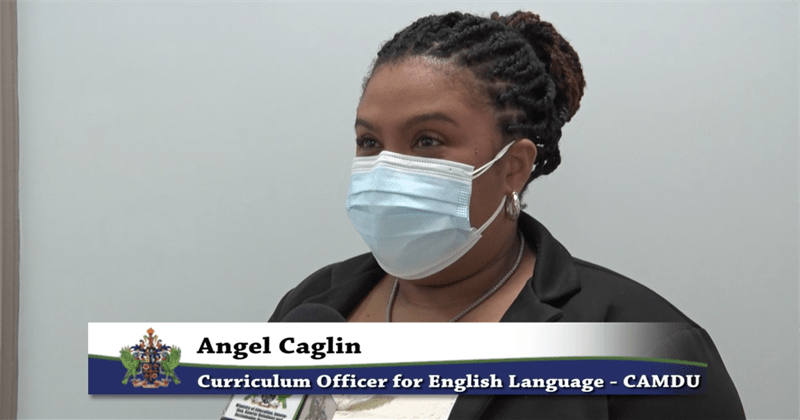11th September 2021
CAMDU Specialists, working on a language policy for the teaching of the Kwéyòl language in schools on the island
By Chris Satney, Ministry of Education


CAMDU Specialists, working on a language policy for the teaching of the Kwéyòl language in schools on the island, are hoping to have the completed implementation plan and already formulated draft policy presented to the Government of Saint Lucia by January of 2022.
The National language policy is a document which looks at the role of Kwéyòl in education, specifically at the primary and secondary levels, ensuring that students at those levels are competent in reading, writing and speaking the Kwéyòl language, much in the same way they do standard English.
The Ministry of Education, Sustainable Development, Innovation, Science, Technology and Vocational Training recently held a National Language Policy Implementation Planning Conference through the Curriculum and Materials Development Unit (CAMDU).
The online forum, which brought together professionals from across the Caribbean region, sought to get an idea of best practices and the considerations for putting an implementation plan together to ensure that Kwéyòl gets the recognition it deserves.
Curriculum Officer for English Language with CAMDU Angel Caglin says the deliberation coming out of the recently held conference will help formulate that strategy including a distinction made between a national language policy and an education language policy. Some other interesting points were the presentation of the actual language instruction methodology and approaches being used by our Martinican counterparts, both at the primary and secondary level. One of the most outstanding aspects was the level of support available to teachers, in terms of coaches and even inspectors ensuring the language was being taught as it should. The language Curriculum Specialist says the plan is to have the strategy for implementation of the policy completed early in the new year along with the already completed draft policy document.
She says the overall aim is to improve student literacy development full circle, affording the Kwéyòl Language the same official stratus as the standard English dialect. Literacy development should always begin with the students’ first language - the native language, the home languages - and understanding the influence that Kwéyòl has had on student development of other languages. It’s important that this language, not just for linguistic but also cultural purposes, be preserved and that the literacy in this language be developed. Based on research, officials are expecting that students’ literacy levels will improve since they will be able to transfer the skills developed in the first language to other languages that they will learn.
It also means that we must have teacher professional development and teacher certification and training so that they can bring across or use the appropriate methodologies and present the language in a way that students will be able to understand all of their content area subjects. Further, afield it means a development of resources, it means the development of content that can be used in the classroom and of course we can just imagine the impact that this is going to have outside of the classroom as well. She says it is also expected that a lot of commercial opportunities will be created for the preparation of material to be used for Kwéyòl instruction within the classroom.

TO RECEIVE NEWS NOTIFICATIONS And Covid NEWS VIA WHATS APP PLEASE SAVE OUR NUMBER AND SEND US A MESSAGE AT 7584896261 AND WE WILL ADD YOU TO OUR LIST




